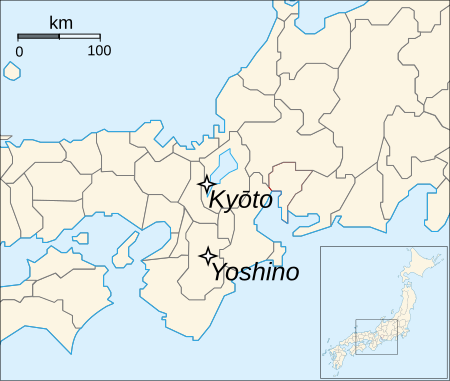Jin dynasty general
Zu Ti (266 – c.October 321[1]), courtesy name Shizhi, was a Chinese military general of the Jin dynasty. Between 313 and 321, he commanded an expeditionary force to reclaim territory in northern China that were lost during the Upheaval of the Five Barbarians. Although Zu Ti received little support from the Jin court in Jiankang, he was able to push all the way to the south of the Yellow River, battling local warlords, the Han-Zhao dynasty and then the Later Zhao dynasty. Zu Ti fought Later Zhao to a truce before having his authority diminished by the Jin imperial court due to concerns of a civil war back home. He soon died in disappointment, and his gains were quickly overturned by the Zhao following his death. Zu Ti's northern expedition was the first in a series by the Jin launched against the Sixteen Kingdoms, and while it failed in the end, he has been lauded as a hero for his determination to reclaim lost northern territory.
Early life
Childhood
Zu Ti was born into a line of county-level officials in Qiuxian county, Fanyang commandery. As a child, he was described as unruly and carefree. He was said to be illiterate until the age of 14 or 15. This worried his brothers, but the young Zu was also known to be generous and ambitious. Often, he would distribute his grain and silk among the poor, which garnered him the respect of his village clansmen. As he grew older, he took the initiative to study and moved to the capital, Luoyang, where he educated himself on history and ongoing affairs. The people of Luoyang at the time thought of him as a prodigy.[2] In 289, while living away in Yangping Commandery, Zu Ti was nominated by the local administration to become a Xiaolian and a Xiucai, but he turned down both offers.
War of the Eight Princes
After his stint in Sichuan, Zu Ti went on to serve several different lords during the so-called War of the Eight Princes (291–306). He first served under the Prince of Qi, Sima Jiong, then the Prince of Changsha, Sima Ai, then the Prince of Yuzhang, Sima Chi, before finally working with the Prince of Donghai, Sima Yue. Zu Ti worked as a Registrar under Sima Ai and was in Luoyang when Ai was besieged by the coalition of Sima Yong and Sima Ying between 302 and 304. During the siege, Zu Ti advised Ai to send an imperial edict to Yong's general, Liu Chen (劉沈), ordering him to attack his superior. Ai did so and was able to convince Liu Chen, forcing Sima Yong to divert his attention to Chang'an.[3]
In 304, Zu Ti participated in Sima Yue's failed campaign in Dangyin (盪陰, today Tangyin County, Henan), where they were badly defeated by Sima Ying and forced back to Luoyang. While Emperor Hui of Jin was held hostage in Chang'an, Zu Ti was approached and invited to serve by several other princes, namely Sima Xiao (司馬虓), Sima Lüe (司馬略) and Sima Mo (司馬模), but he declined them all. After his mother died, Zu Ti resigned from the government to mourn her.[4]
Fleeing south
In July 311, Luoyang and Emperor Huai of Jin were captured by the forces of the Han-Zhao dynasty. To avoid the chaos in the north, Zu Ti and a group of refugees decided to flee south of Yangtze River to Sikou (泗口, located at Xuzhou, Jiangsu). Zu walked on foot, giving his horses and carriages to the sick and old as well as giving food, clothes, and medicines to those who needed them. The group met with bandits along the way, but Zu was able to help them cope with this. Because of this, the refugees elected Zu to be their leader for the rest of their journey. After arriving in Sikou, Zu Ti was appointed the Inspector of Xuzhou and later the Army Libationer-Advisor by the Prince of Langye, Sima Rui. Zu based himself in Jingkou, where he began recruiting abled men into his army.[5]
Northern expedition
Returning north
In 313, a new Jin government was established in Chang'an headed by Emperor Min of Jin. Min sent an edict to Sima Rui instructing him to advance north to help in restoring the Central Plains. However, Rui showed very little interest in carrying out the edict. Seeing this, Zu confidently approached Sima Rui, volunteering himself to oversee an expedition to the north. Rui was not entirely moved by Zu's display of confidence, but nonetheless permitted him and appointed him as Inspector of Yuzhou and General Who Exerts Might. He also provided Zu Ti with food and clothes for his soldiers but not weapons and armor. Zu also had to do the recruitments himself.
Regardless, Zu Ti led his forces north and crossed the Yangtze. While crossing, Zu Ti was said to have struck his oar and declared, "If Zu Ti is not able to restore the Central Plains and return, then let he be like this great river (and never return)!" Zu Ti landed in Huaiyin county in 313, where he built smithies and foundries to have his soldiers produce their own weapons.[6]
Subduing Zhang Ping and Fan Ya
Zu Ti's first adversaries in his northern expedition were the refugees-turned-warlords, Zhang Ping (張平) and Fan Ya (樊雅), who had set up their fortresses in the princely fief of Qiao. The two men recently submitted to Jin, so in 317, Zu Ti camped at Luzhou and had his Army Advisor Yin Ai (殷乂) pay them visits. However, unbeknownst to Zu, Yin Ai offended Zhang Ping during his visit to the point that Zhang had Yin executed. Both Zhang and Zu Ti rallied their troops against each other soon after. Initially, Zu was unable to break through Zhang's defenses, so he instead plotted to have one of Zhang's generals, Xie Fu (謝浮), turn against him. His ploy succeeded, resulting in Xie Fu assassinating Zhang Ping and surrendering with the rest of Zhang's army. However, Zu Ti was running low on supplies, and he later moved to Taiqiu County (太丘; in present day Yongcheng, Henan).[7]
Parts of Qiao were still controlled by Fan Ya, who was startled by Zu Ti's recent actions. He led his troops to launch a night attack on Zu Ti's camp. Zu Ti's troops were caught by surprise, but Zu quickly regrouped them and turned away Fan Ya. Zu then attacked Fan but was caught in a stalemate, so he requested the Administrator of Chenliu, Chen Chuan (陳川), and the General of the Household of the South, Wang Han (王含) for reinforcements. Chen Chuan and Wang Han sent Li Tou (李頭) and Huan Xuan respectively to help Zu. Huan was a rather respected individual at the time, and knowing this, Zu decided to use him to negotiate peace with Fan Ya. Fan was convinced by Huan Xuan's reasoning and persuasion, so he agreed to surrender himself and Qiao to Zu Ti.[8]
Zu Ti's success in Qiao caught the attention of Han-Zhao's top general, Shi Le. Concerned, Le sent his nephew, Shi Hu, to capture Qiao. Wang Han dispatched Huan Xuan again to help Zu Ti, and together, they defeated and drove back Shi Hu.
Battle of Junyi
In 319, Chen Chuan grew abhorrent of Zu Ti after hearing Li Tou lament about not being able to serve Zu, who had treated him well during their time against Fan Ya. Chen Chuan had Li Tou executed for his comments, but this caused Li's friend, Feng Chong (馮寵), to join Zu Ti with 400 people. Angered, Chen Chuan pillaged the commanderies of Yuzhou, but Zu Ti campaigned against and routed him.
After his defeat, Chen Chuan submitted to Shi Le, who at this point, had broken away from Han-Zhao and formed his state of Later Zhao. Zu Ti attacked Chen at Pengguan (蓬關, in modern-day Chenliu, Henan) but was driven back by Shi Hu at Junyi county (浚儀, in modern-day Kaifeng). Reinforcements from Shi Le's general, Tao Bao forced Zu Ti to retreat to Huainan whilst Shi Hu relocated Chen Chuan and his followers to Zhao's capital in Xiangguo.[9] In 320, Zu Ti sent his general, Han Qian (韓潛) to attack Junyi. The city was split into two sections, with the eastern half occupied by Han Qian and the other occupied by Tao Bao.
Both sides suffered from food shortages, but Zu Ti was able to sell a false impression that his army was more well-supplied than Tao's, which demoralized the Later Zhao troops. Later, when the Zhao general, Liu Yetang (劉夜堂) was transporting grains for Tao Bao, Han Qian and another one of Zu Ti's generals, Feng Tie (馮鐵), attacked Liu at the Bian River and took all of the grains. After 40 days, Tao Bao began to feel overwhelmed, so he fled during the night and retreated to Dongye (東燕, in modern-day Henan). Zu Ti ordered Han Qian to place pressure on Tao from Fengqiu while Feng Tie occupied the rest of Junyi.[10]
Truce with Later Zhao
At the same time, Zu Ti moved his base to Yongqiu and launched raids against the Later Zhao army, accepting many surrenders from their troops. He also got the Jin generals Guo Mo, Li Ju, Zhao Gu (趙固) and Shangguan Si (上官巳), who were all stationed along the Huai River, to accept his authority after settling a quarrel between the four men. Later Zhao's borders were beginning to feel the strain, so Shi Le sought for peace with Zu Ti.
Shi Le restored Zu Ti's grandfather and father's tombs as an act of good faith and offered to allow trade between them. Although Zu Ti did not directly reply, trade between the two sides occurred just as Shi Le had wanted. One time, Zu Ti's General of the Standard, Tong Jian (童建) defected to Shi Le, but Shi had him beheaded. Tong's head was returned to Zu Ti along with a letter of friendship by Shi Le. Zu Ti was so impressed at his display that he later ordered his followers to return any defector from Zhao and forbid them from pillaging Shi Le's land. Conflict between the two sides gradually died down, and the border between Jin and Zhao experienced a short period of amity.[11]
Death
While Zu Ti was campaigning against Shi Le, the tension between Sima Rui (Emperor Yuan of Jin as of 318) and his powerful general Wang Dun was beginning to reach its breaking point. To protect himself from Wang, one decision that Emperor Yuan did in 321 was to appoint the southern gentry Dai Yuan (戴淵) as Chief Controller in Yuzhou, effectively making Zu Ti a subordinate to Dai. This left Zu distraught, as he did not think that Dai had the foresight to realize Zu's plans for the north. He also felt snubbed, seeing how quickly he was demoted despite his efforts. Combined with the possibility of civil war in the south, Zu believed his ambitions to reclaim the north were over, and he soon became severely ill.[12]
Despite this, Zu insisted on making progress. He camped at Hulao (虎牢, in modern Zhengzhou, Henan) intending to build a barrier south of the city to defend against invading forces, but before he could complete it, he succumbed to his illness in c.October 321. Zu Ti's death was mourned by the people of Yuzhou who deeply respected and loved him; they mourned as though they had lost their parents. The people of Qiao and Liang erected shrines dedicated to him.[13]
Wang Dun had long feared Zu Ti's strength, so he was relieved by the news of his death and became more eager to oppose Sima Rui. Zu Ti's younger brother, Zu Yue, was appointed to replace him as General Who Pacifies The West and Inspector of Yuzhou, but he was not as talented as Ti and not on good terms with his brother's generals. Later Zhao capitalized on Zu's death by resuming hostilities with Jin in 322. Zu Yue was unable to defend his territory and retreated to Shouchun, allowing Zhao to regain the territories they had lost to Zu Ti.[14]
Friendship with Liu Kun
Zu Ti is most known for his friendship with another famous Jin general during his time, Liu Kun. The two met each other while serving as registrars in Sizhou in the 290s. The two were very close to one another, often discussing worldly affairs among themselves and even sharing the same bedchamber. When they could not sleep at night, they would often remind each other, "When the Four Seas boil and heroes rise side by side, you and I should avoid each other on the Central Plains."[15] After Zu Ti was transferred to a higher office, Liu Kun wrote to his relatives, "The spear is my pillow as I await dawn, for my ambition is to vanquish the enemy. I often fear that Zu Ti would be the first to crack the whip."[16]
"Rising at Cockcrow to Practice the Sword"
A famous story goes that one night, when Zu Ti and Liu Kun were sleeping on the same bed, Zu heard the sound of a cockcrow in the middle of the night. In old times, this was seen as a bad omen. However, Zu saw this differently. He kicked Liu Kun awake, telling him, "This is no evil sound." They then got out of their bed and performed a sword dance. A Chinese proverb, "rising at cockcrow to practice the sword (聞雞起舞)" is accredited to this story, and is used to describe diligence.[17]
References
- ^ Both Emperor Yuan's biography in Book of Jin and vol.91 of Zizhi Tongjian recorded that Zu Ti died on the ren'yin day of the 9th month of the 4th year of the Da'xing era. But, there was no ren'yin day in that month; the month corresponds to 8 Oct to 5 Nov 321 in the Julian calendar.
- ^ (世吏二千石,為北州舊姓。逖性豁蕩,不修儀檢,年十四五猶未知書,諸兄每憂之。然輕財好俠,慷慨有節尚,每至田舍,輒稱兄意,散穀帛以周貧乏,鄉黨宗族以是重之。後乃博覽書記,該涉古今,往來京師,見者謂逖有贊世才具。) Jin Shu, vol.62
- ^ (驃騎主簿范陽祖逖言於乂曰:「劉沈忠義果毅,雍州兵力足制河間,宜啓上爲詔與沈,使發兵襲顒。顒窘急,必召張方以自救,此良策也。」乂從之。) Zizhi Tongjian, vol.85
- ^ (從惠帝北伐,王師敗績於蕩陰,遂退還洛。大駕西幸長安,關東諸侯范陽王虓、高密王略、平昌公模等競召之,皆不就。東海王越以逖為典兵參軍、濟陰太守,母喪不之官。) Jin Shu, vol.62
- ^ (及京師大亂,逖率親黨數百家避地淮泗,以所乘車馬載同行老疾,躬自徒步,藥物衣糧與眾共之,又多權略,是以少長咸宗之,推逖爲行主。達泗口,元帝逆用爲徐州刺史,尋徵軍諮祭酒,居丹徒之京口。) Jin Shu, vol.62
- ^ (時帝方拓定江南,未遑北伐,逖進說曰:"晉室之亂,非上無道而下怨叛也。由藩王爭權,自相誅滅,遂使戎狄乘隙,毒流中原。今遺黎既被殘酷,人有奮擊之志。大王誠能發威命將,使若逖等為之統主,則郡國豪傑必因風向赴,沈弱之士欣於來蘇,庶幾國恥可雪,願大王圖之。"帝乃以逖為奮威將軍、豫州刺史,給千人稟,布三千匹,不給鎧仗,使自招募。仍將本流徙部曲百餘家渡江,中流擊楫而誓曰:「祖逖不能清中原而復濟者,有如大江!」辭色壯烈,眾皆慨歎。屯于江陰,起冶鑄兵器,得二千餘人而後進。) Jin Shu, vol.62
- ^ (初,北中郎將劉演距于石勒也,流人塢主張平、樊雅等在譙,演署平爲豫州刺史,雅爲譙郡太守。又有董瞻、于武、謝浮等十餘部,眾各數百,皆統屬平。逖誘浮使取平,浮譎平與會,遂斬以獻逖。帝嘉逖勳,使運糧給之,而道遠不至,軍中大饑。進據太丘。樊雅遣眾夜襲逖,遂入壘,拔戟大呼,直趣逖幕,軍土大亂。逖命左右距之,督護董昭與賊戰,走之。逖率眾追討,而張平餘眾助雅攻逖。蓬陂塢主陳川,自號甯朔將軍、陳留太守。逖遣使求救於川,川遣將李頭率眾援之,逖遂克譙城。) Jin Shu, vol.62
- ^ (含遣宣領兵五百助逖。逖謂宣曰:“卿先已說平、雅,信義大著於彼。今復為我說雅。雅若降者,方相擢用,不但免死而已。”宣複單馬從兩人詣雅,曰:“祖逖方欲平蕩二寇,每何卿為援。前殷乂輕薄,非豫州意。今若和解,則忠勳可立,富貴可保。若猶固執,東府赫然更遣猛將,以卿烏合之眾,憑阻窮城,強賊伺其北,國家攻其南,萬無一全也。願善量之。”雅即斬異己者,遂出降。) Jin Shu, vol.81
- ^ (李頭之討樊雅也,力戰有勳。逖時獲雅駿馬,頭甚欲之而不敢言,逖知其意,遂與之。頭感逖恩遇,每歎曰:“若得此人為主,吾死無恨。”川聞而怒,遂殺頭。頭親党馮寵率其屬四百入歸於逖,川益怒,遣將魏碩掠豫州諸郡,大獲子女車馬。逖遣將軍衛策邀擊於谷水,盡獲所掠者,皆令歸本,軍無私焉。川大懼,遂以眾附石勒。逖率眾伐川,石季龍領兵五萬救川,逖設奇以擊之,季龍大敗,收兵掠豫州,徙陳川還襄國,留桃豹等守川故城,住西台。) Jin Shu, vol.62
- ^ (逖遣將韓潛等鎮東台。同一大城,賊從南門出入放牧,逖軍開東門,相守四旬。逖以布囊盛土如米狀,使千餘人運上臺,又令數人擔米,偽為疲極而息於道,賊果逐之,皆棄擔而走。賊既獲米,謂逖士眾豐飽,而胡戍饑久,益懼,無複膽氣。石勒將劉夜堂以驢千頭運糧以饋桃豹,逖遣韓潛、馮鐵等追擊於汴水,盡獲之。豹宵遁,退據東燕城,逖使潛進屯封丘以逼之。馮鐵據二台,逖鎮雍丘。) Jin Shu, vol.62
- ^ (祖逖牙門童建害新蔡內史周密,遣使降於勒。勒斬之,送首於祖逖,曰:“天下之惡一也。叛臣逃吏,吾之深仇,將軍之惡,猶吾惡也。”逖遣使報謝。自是兗豫間壘壁叛者,逖皆不納,二州之人率多兩屬矣。) Jin Shu, vol.105
- ^ (逖雖內懷憂憤,而圖進取不輟,營繕武牢城,城北臨黃河,西接成皋,四望甚遠。逖恐南無堅壘,必為賊所襲,乃使從子汝南太守濟率汝陽太守張敞、新蔡內史周閎率眾築壘。未成,而逖病甚。俄卒於雍丘,時年五十六。) Jin Shu, vol.62
- ^ (逖雖內懷憂憤,而圖進取不輟,營繕武牢城,城北臨黃河,西接成皋,四望甚遠。逖恐南無堅壘,必爲賊所襲,乃使從子汝南太守濟率汝陽太守張敞、新蔡內史周閎率眾築壘。未成,而逖病甚... 俄卒於雍丘,時年五十六。豫州士女若喪考妣,譙梁百姓爲之立祠。) Jin Shu, vol.62
- ^ (祖逖旣卒,後趙屢寇河南,拔襄城、城父,圍譙。豫州刺史祖約不能禦,退屯壽春。後趙遂取陳留,梁、鄭之間復騷然矣。) Zizhi Tongjian, vol.91
- ^ (逖、琨並有英氣,每語世事,或中宵起坐,相謂曰:"若四海鼎沸,豪傑並起,吾與足下當相避于中原耳。") Jin Shu, vol.62
- ^ (與范陽祖逖為友,聞逖被用,與親故書曰:「吾枕戈待旦,志梟逆虜,常恐祖生先吾著鞭。」) Jin Shu, vol.62
- ^ (與司空劉琨俱為司州主簿,情好綢繆,共被同寢。中夜聞荒雞鳴,蹴琨覺曰:“此非惡聲也。”因起舞。) Jin Shu, vol.62



















